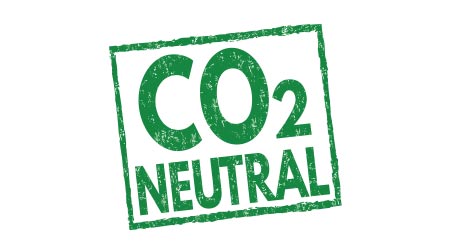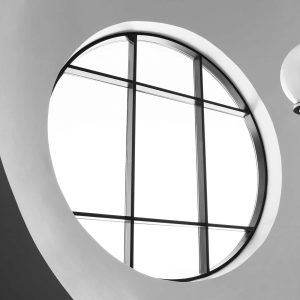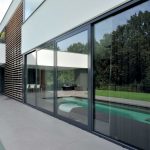Net zero carbon: Is the industry ready?
November 10, 2021
The Future Homes Standard will come into effect in just four years, and poses a huge challenge for the industry. Dekko Window Systems Sales Director Kurt Greatrex shares how we can be prepared…
Sustainability is a topic now talked about daily amongst all levels of the fenestration industry.

Just recently, the UN released a scientific report dubbed ‘code red for humanity’, warning of increasingly extreme heatwaves, droughts and flooding, and a key temperature limit being broken in just over a decade.
In 2019, the UK became the first major economy in the world to pass laws to end its contribution to global warming by 2050, a target requiring the country to bring all greenhouse gas emissions to net zero in less than 30 years.
But a much more pressing deadline is the Future Homes Standard, the first major stepping stone to becoming net zero carbon that requires all new homes in England to be futureproofed with high levels of energy efficiency by 2025 – just four years away.
The strict set of standards will ensure that all new homes built in England from 2025 will produce 75 to 80% less carbon emissions than homes delivered under current regulations.
By June next year, u-values for windows and glazed doors in new build homes will reduce from 1.4 to 1.2, while for opaque and semi-glazed doors, this will be standardised to 1.0.
The expectation is that by 2025, there will be a further reduction for windows to a u-value of 0.8.
A 2025 commitment towards a net zero carbon 2050 will have huge implications on how we operate in fenestration – it’s one of the strictest carbon emission targets in the world, and if we’re going to achieve it, energy efficiency will have to take precedence like never before.
The Future Homes Standard – A ticking time bomb for fabricators & installers
Amendments to government regulations are always being made, and this autumn, the Ministry of Housing Communities and Local Government (MHCLG) is expected to publish new standards for energy efficiency.
As a result, fabricators across the board could suddenly find that many of their products fall short of new building regulations, effectively locking them out of the market.
I think it’s important that all fabricators start looking at new processes and materials now, and consider the implications for fabrication and installation.
I’m certain that come 2025, when the Future Homes Standard is in place, products will look different to what they do now, including bigger frames, higher performance hardware, and triple glazing.
As a result, these products will most likely take longer to fabricate and install, and will therefore be more in demand and more expensive.
Materials for these products will suddenly be in very high demand, and suppliers will be stretched like never before, which is why it’s imperative to establish strong relationships with trusted suppliers now.
The right products
At Dekko, we have many products in our armoury contributing towards achieving a net zero carbon goal – both our Infinity range of uPVC windows and doors, as well as our Räum range of luxury aluminium products, boast low u-values which contribute to sustainability.

But we are also the UK’s largest fabricator of Residence Collection windows and doors, a range that surpasses most products when it comes to thermal efficiency.
The luxury timber effect window system exudes classic charm and can be used to replace original timber windows in heritage properties, or installed in more modern homes as a high-performance alternative to standard uPVC.
Available in three styles – R9, R7, and R2 – Residence Collection windows are manufactured with frames using either 7 or 9 chambers, as opposed to 5 or 6 like most uPVC windows on the market, offering excellent thermal efficiency and contributing to a more sustainable future while also reducing overall energy bills.
Both R9 and R7 offer a u-value of 1.2 with double glazing and 0.8 with triple glazing, while R2 offers a u-value of 1.2 with double glazing, and an impressive 0.79 when triple glazed.
All three ranges guarantee an A++ energy rating, easily passing British Building Regulations as well as achieving one of the highest classifications on the British Standard Weather Test.
Commitment to success
The coming changes to regulations are severe, and will no doubt affect almost every business at all levels of the fenestration industry.
But that’s not to say it’s not possible.
We’re not there yet, and it will take time, but despite the huge challenge that faces us all, I believe that with careful pre-planning, maintaining strong partnerships with both suppliers and customers, and investing in the right products now, we can certainly achieve a net zero carbon UK by 2050.










Nationwide delivery in the UK
From our state-of-the-art factory in Lancashire, our products are transported to installers across the UK. We strive to meet all delivery deadlines to ensure our customers are never delayed. They stock an extensive range of PVCu and ancillary products to give installers easy and convenient access to all the necessary hardware.
Contact Us
